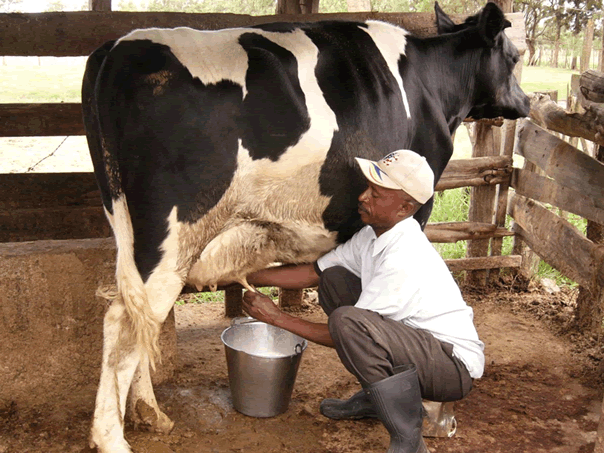 |
Okhama ing’ombe nolengela iketi. (Tachoni) Ukikamua ng’ombe ya wenyewe huwe ukiangalia langoni. (Swahili) Tu extrais la vache de quelqu’untout en regardant à la porte. (French) You milk someone else’s cow while watching the gate. (English) |
Tachoni (Kenya) Proverb
Background, Meaning and Everyday Use
The Tachoni people are Kalenjins assimilated by the Luhya people of Western Kenya, sharing land with the Bukusu Ethnic Group. They live mainly in Webuye, Chetambe Hills, Ndivisi (of Bungoma County) and the former Lugari District in the Kakamega County. Most Tachoni clans living in Bungoma speak the Lubukusu dialect of the Luhya language making them get mistaken as Bukusus. They spread to Trans-Nzoia County especially around Kitale, Mumias and Busia. The Tachoni Ethnic Group is rich in beliefs and taboos. The most elaborate cultural practice they have is circumcision. The Tachoni practice circumcision in August of every even year. When the boys are circumcised they go to hunt in the village’s forest for birds, Guinea fowl (likhanga). Then in the evening they come home and a meal is prepared for them. Most meals for initiates have to be rich in proteins (to replace blood lost during the circumcision) and have a staple food in the whole of Kenya known as ugali that is called obusuma in Tachoni.
For the Tachoni, like other Luhya communities, their traditional economic activities were mixed farmers. They grew crops and kept cattle and every homestead had cows. Cows were domestic animals kept by the Tachoni for their, milk, skin, meat and other benefits which come with them. The family/homestead with many cows was considered to be rich. The Tachoni homesteads were not surrounded by stone walls, but by the trees planted surrounding the homestead mostly leaving the gates open. Milking of cows was mostly done early in the morning and late in the evening. Any member of the community who was caught milking their neighbor’s cow was severely punished. Through observation of this phenomenon, the wise elders of the Tachoni community came up with this proverb which has been continuously used by the community.
The meaning of this Tachoni proverb is that whenever you partake in any activity which is ungodly or against the custom and traditions of the community, you should always be careful because if you are caught, the consequences will be dire. Members caught as wrongdoers were punished and sometimes banished from the community. The Tachoni people use this proverb in their everyday life to warn those with deviant behavior in the community that there is serious consequence for all the bad deeds they partake in. It was also used in daily interaction to enhance the cohesion, discipline, education and maintaining their way of life. It advises members of the community to always be careful and respect each other’s property for the coherent and peace of the community.
Biblical Parallels
“Just as Sodom and Gomorrah and the surrounding cities, which likewise indulged in sexual immorality and pursued unnatural desire, serve as an example by undergoing a punishment of eternal fire” (Jude 1:7).
“The soul who sins shall die. The son shall not suffer for the iniquity of the father, nor the father suffer for the iniquity of the son. The righteousness of the righteous shall be upon himself, and the wickedness of the wicked shall be upon himself” (Ezekiel 18:20).
“For anyone who eats and drinks without discerning the body eats and drinks judgment on himself or herself. That is why many of you are weak and ill, and some have died” (1 Corinthians 11:29-30).
Contemporary Use and Religious Application
In our modern world, especially this 21st Century, Christianity is under great pressure. Many people of the world have lost their way and immorality is on the increase. The prophets and other servant men and women of God are preaching for repentance. We learn from the Bible about those cities that went against the ways of the Lord and were punished for their wrong doing. This serves as an example to contemporary modern people to ensure that our ways are pleasing to God. This Kenyan proverb tries to warn Christians to be careful and follow the ways and teaching of our Lord Jesus Christ. It ensures that each step that you take as a Christian is pleasing to Him.
Annastasi Oisebe
Nairobi, Kenya
Tel No: 0705600979
Email: annastasioisebe78@gmail.com
Photograph provided by:
Cephas Yao Agbemenu
Department of Fine Arts
Kenyatta University
P.O. Box 43844
Nairobi, Kenya
Cellphone: +254 723-307992
Email: cyagbemenu@yahoo.com

